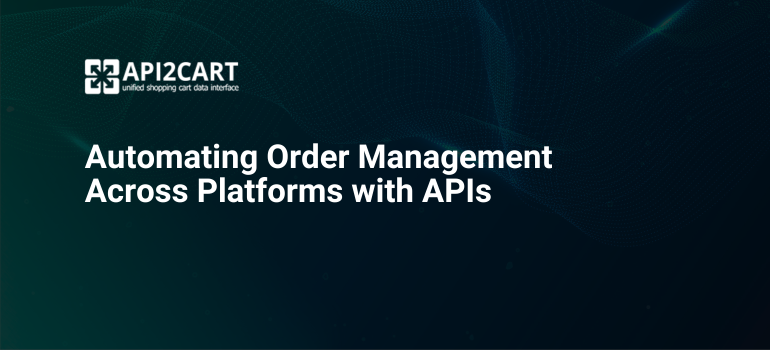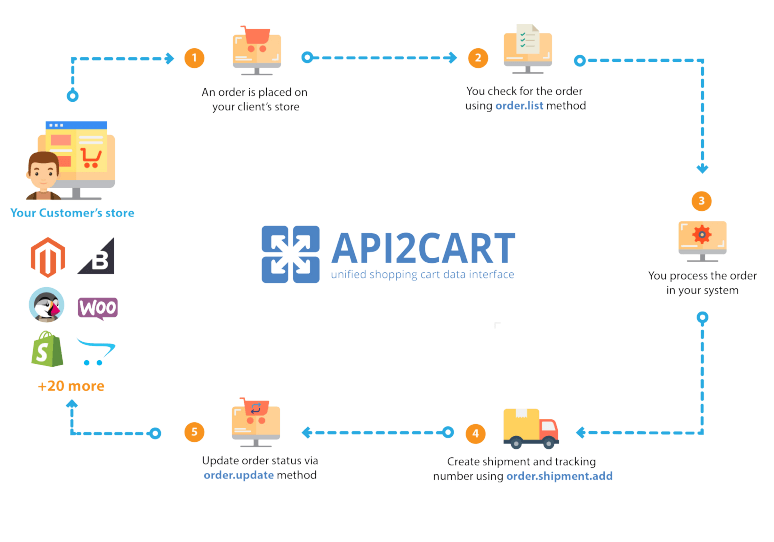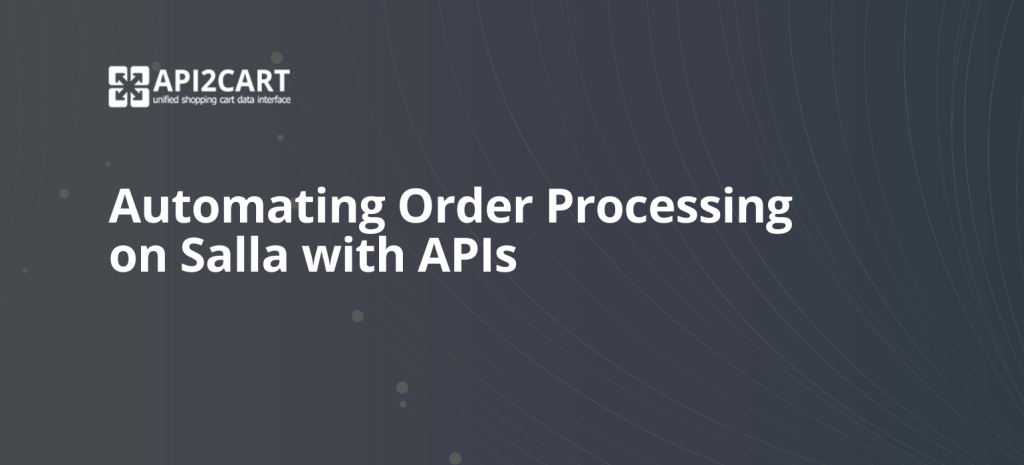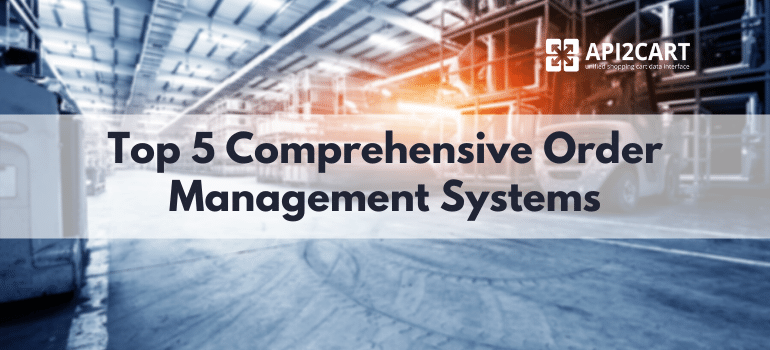
In the fast-paced world of eCommerce, efficient order management is crucial for maintaining smooth operations and delivering exceptional customer experiences. However, managing orders across eCommerce platforms, marketplaces, e-stores, and fulfillment systems, can be complex and time-consuming. For order management software providers, this is where APIs (Application Programming Interfaces) become game-changing tools.
Order management automation APIs allow order management software providers to streamline and automate critical processes, such as order tracking, inventory updates, shipping logistics, and payment reconciliation. By enabling seamless data exchange between systems, APIs reduce manual effort, eliminate errors, and ensure real-time updates across all channels. This article explores the importance of API-driven automation in order management, how it enhances efficiency and accuracy, and the key integration strategies for order management software providers. Whether it’s syncing orders from a marketplace or automating shipping label generation, APIs empower order management software providers to deliver scalable, reliable, and customer-centric solutions in an increasingly interconnected eCommerce landscape.
What is an Order Management System?
Order management is the process of tracking, managing, and fulfilling customer orders efficiently from the moment they are placed until they are delivered. For order management software providers, this involves offering solutions and tools that streamline the entire lifecycle of an order, ensuring accuracy, timeliness, and customer satisfaction.
An Order Management System (OMS) is a software solution designed to streamline and automate the entire lifecycle of an order, from the moment a customer places it to its final delivery. OMS enables businesses to efficiently manage orders across multiple sales channels, including online stores, marketplaces, and physical locations. An effective order management system integrates various aspects of the order process, including inventory updates, payment processing, shipping coordination, and customer communication. By automating and optimizing these tasks, providers help businesses reduce manual errors, improve operational efficiency, and enhance the overall customer experience.
For order management software providers, the goal is to offer scalable, flexible, and technology-driven solutions that cater to diverse business needs, whether it's managing orders across multiple sales channels, integrating with third-party platforms, or enabling real-time order tracking. This is where modern tools, such as APIs play a vital role, enabling seamless connectivity and automation to support businesses in the dynamic world of eCommerce.

The Meaning of Order Management Automation and Its Key Aspects
Order management automation refers to the use of technology and software to streamline and optimize the process of managing customer orders across various channels. For order management software providers, automation eliminates manual tasks, reduces human error, and ensures faster, more accurate order processing.
Key aspects of order management automation include:
- Order Capture and Synchronization: Automatically collecting orders from multiple sales channels (eCommerce platforms and marketplaces) and consolidating them into a single system for efficient management.
- Inventory Management: Keeping inventory levels synchronized across platforms in real-time to avoid overselling or stockouts.
- Order Routing: Automatically directing orders to the appropriate warehouse, supplier, or fulfillment center based on predefined rules.
- Shipping and Tracking: Integrating with shipping carriers to automate label generation, shipment tracking, and status updates to customers.
- Reporting and Analytics: Providing automated insights into sales trends, order statuses, and fulfillment performance to support data-driven decision-making.
For order management software providers, automation transforms how businesses handle their operational workflows. It improves scalability, reduces costs, and enhances customer satisfaction by enabling faster and more reliable order fulfillment. Modern tools, such as APIs further empower order management software providers to offer robust automation solutions by seamlessly connecting with third-party systems and platforms.
The Importance of APIs for Order Management Automation
APIs (Application Programming Interfaces) play a pivotal role in enabling seamless and efficient order management automation. For order management providers, APIs serve as the bridge that connects disparate systems, platforms, and applications, ensuring smooth data flow and operational harmony. Here’s why APIs are crucial for order management automation:
- Real-Time Data Exchange: Through APIs, real-time data synchronization becomes possible, keeping inventory levels, order statuses, and shipping updates accurate and current. This prevents overselling, stockouts, and delayed customer communications.
- Enhanced Flexibility and Scalability: APIs offer flexibility to customize integrations based on client requirements. They enable order management providers to scale their solutions to support new sales channels, third-party services, or advanced functionalities as business needs evolve.
- Automation of Repetitive Tasks: APIs automate key processes like order routing, inventory updates, and shipping label generation. This reduces the manual workload, minimizes human errors, and speeds up the fulfillment process.
- Improved Customer Experience: By ensuring accurate order tracking, timely fulfillment, and clear communication, APIs help order management providers deliver a superior customer experience. Satisfied end-users are more likely to remain loyal to an order management software provider's solution.
- Enhanced Analytics and Reporting: APIs enable the collection and aggregation of data from various integrated systems, providing valuable insights into sales trends, inventory performance, and fulfillment efficiency. Order management software providers can use this data to improve their services and help clients optimize operations.
- Seamless Integration Across Platforms: APIs allow order management systems to integrate with multiple eCommerce platforms, marketplaces, and ERP systems. This ensures all customer orders, inventory data, and shipping details are synchronized, providing a unified view and eliminating accumulated data.
In the fast-paced world of eCommerce, APIs are indispensable tools for order management software providers seeking to automate and streamline operations. They not only ensure smooth communication between systems but also empower order management software providers to deliver cutting-edge, scalable, and efficient solutions tailored to their customers' needs.

How to Implement Order Management Automation Across Platforms with APIs?
Order management software providers aiming to streamline operations and enhance customer satisfaction need robust solutions for automating order workflows. If you provide an order management system, you might be wondering how to get and manipulate data from your customers’ stores (orders, products, customers, etc.) to meet all their needs. Different eCommerce platforms have different methods of data storage, so if you choose to do the integration, you will have to build up the separate integration modules for each of the platforms. The problem here is that this can take a lot of time and money to develop, and it will need further maintenance. But there’s a way to avoid a lot of these pains with API2Cart.
API2Cart offers a unified API that connects to 60+ eCommerce platforms and marketplaces, such as Shopify, Magento, WooCommerce, BigCommerce, OpenCart, PrestaShop, and others, at once, enabling seamless order management automation across platforms. By leveraging API2Cart's unified API, order management software providers can deliver a scalable and efficient solution for automating order workflows across multiple platforms.
This integration not only saves development time but also ensures a competitive edge in the dynamic eCommerce landscape. It also enables you to get and manage such data as orders, products, categories, shipments, and customers. It offers a well-documented API and full technical support. API2Cart also has 100+ methods to retrieve, add, and update the needed data from these platforms’ databases. Let’s dig deeper into these methods API2Cart provides for order management systems:

For working with orders:
- order.add, order.update - create and update orders on stores;
- order.count, order.status.list - get the total number of orders from the store and get order statuses;
- order.info - get the details about an order;
- order.abandonment.list - create, update and delete orders on stores;
- order.shipment.tracking.add - track shipments’ info status and provide delivery performance info.
API2Cart’s webhooks for order management system
Order.update webhook is one more great benefit API2Cart offers to manage orders in your order management system as it notifies you every time an order is updated (including changes in the order status). In addition, it makes it possible to notify customers about the status of their orders, create orders, send invoices or ship orders to the shipping services.

In summary, with API2Cart you can:
- Integrate your order management system with multiple eCommerce platforms and marketplaces;
- Sync orders placed on different e-stores and manage them in no time;
- Retrieve orders and customers with related information from e-stores, process it in your system and offer your clients a robust order management service;
- Get order status and order updates to easily track them;
- Retrieve customers’ details to send notifications about orders anytime and anywhere;
- Notify your customers on inventory updates all at once and perform product count.
If you have any questions, don’t hesitate to book a FREE demo and contact our experts.
Conclusion
Order management automation APIs are transforming the way order management software providers streamline and enhance their solutions. By leveraging APIs, they can integrate seamlessly with eCommerce platforms, marketplaces, and other critical systems, enabling real-time data synchronization and the automation of complex workflows. This not only reduces manual errors and operational inefficiencies but also empowers businesses to scale their operations and deliver superior customer experiences.
APIs serve as the backbone for modern, interconnected ecosystems, ensuring agility, scalability, and efficiency for order management software providers. As the eCommerce landscape continues to evolve, investing in robust API integrations is a strategic necessity. For order management software providers looking to stay competitive and meet the demands of today's dynamic market, embracing order management automation APIs is a pivotal step toward future success.



